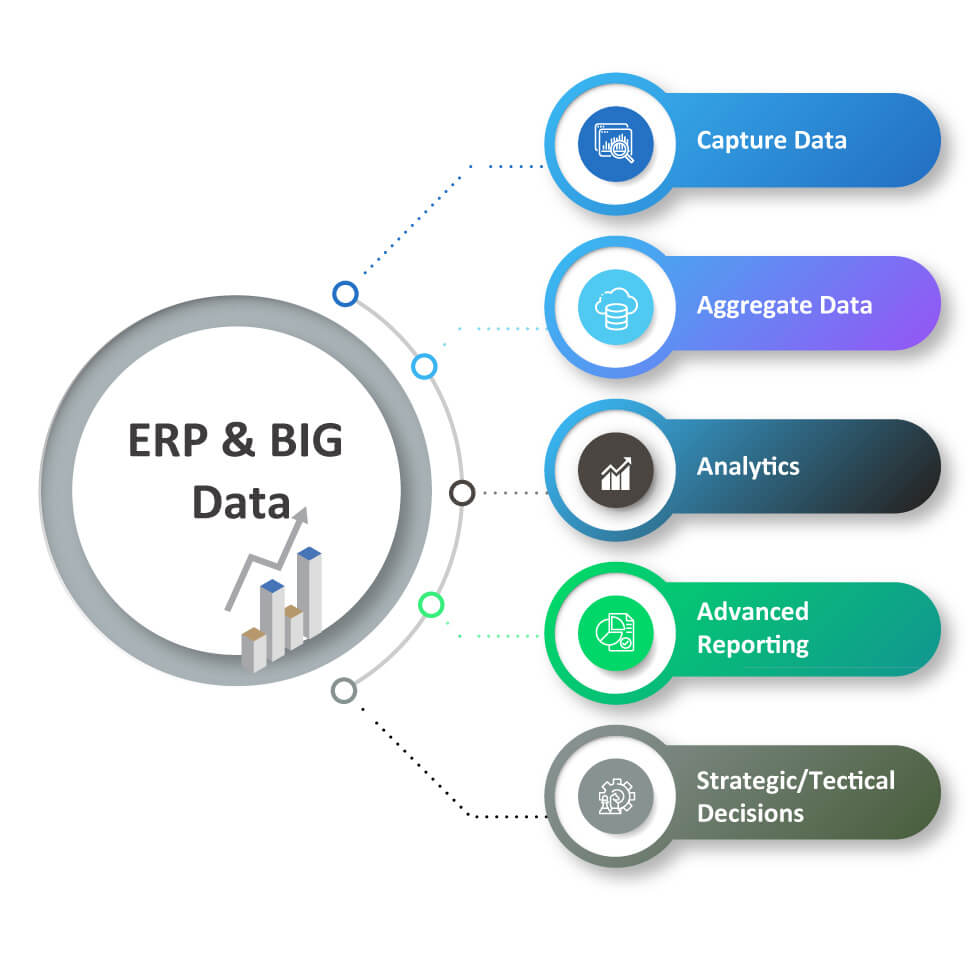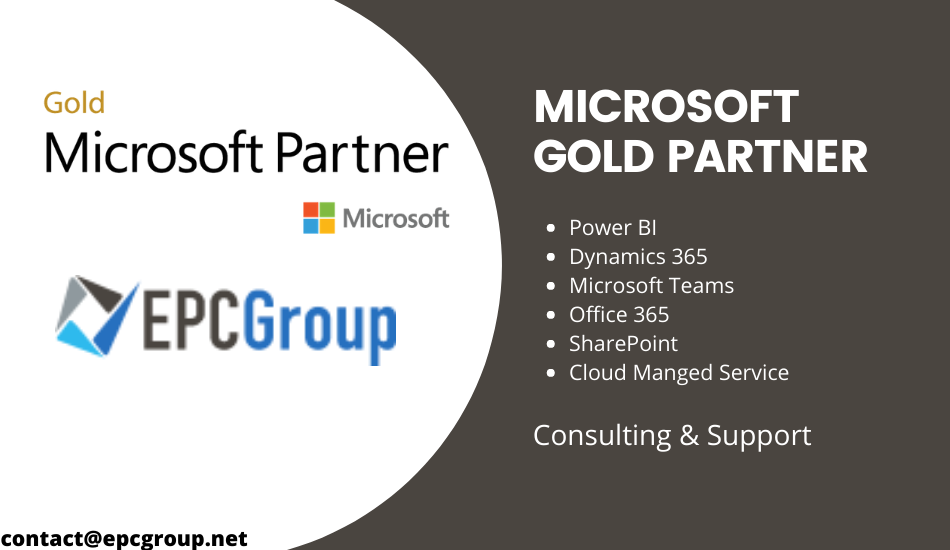The term ERP is the abbreviation of the concept of Enterprise Resource Planning. This ERP analytics concept encompasses the method of integrating and organizing the information which is of fundamental importance to an organization.
In this context, the term ‘Enterprise Analytics’ is of utmost importance. Enterprise Analytics, in the general sense, implies the process of making data and analytical solutions available all over the organization.
The companies, in this contemporary market, have the opportunity to collect, organize and subsequently analyze data. This in turn improves the functionality of the user company.
What is Data Driven Analysis and it’s influence on decisions making
Data Driven Analysis refers to the analytic process that is completed through the dependence upon the collection, organization and analysis of data. An organization does not require to make decisions on the basis of abstract assumptions when it has access to well analyzed data patterns. Likewise, in the contemporary competitive world, this ERP analytic process has manifold advantages.
What are the advantages of Advance Analytics for business:
- Setting the correct Goals:
In the business arena, any organization survives and thrives on the basis of constant development. But development is not a single process. It is rather a total of small goals set by the organization, that you can later achieve. The direct access to well analyzed data, in-depth analysis and predictive analytics capabilities like ERP analytics helps a company to set realistic goals. You can achieve these in order to further the process of progress. - Time saving and Cost-Effective:
A data driven analysis process gives the user company to directly access the information based on its strengths. Also, the areas that need rectification or progress. This saves the time usually lost in finding the weak points in an organization’s functioning like inventory management and aids in cost savings. - Reduction of biases: In the absence of a data driven decision pattern, the company takes decisions based on assumptions regarding the changing market. Although the traditional decision making pattern is a personalized process, it can also lead to the occurrence of biases due to personal experiences. Thus, the use of data driven analysis methods reduce the chances of bias.
- Personalizing Experiences: The biggest advantage of data driven decision making is the fact that organizations can personally step into the shoes of the customers. This in turn simplifies all the process of recognizing the patterns and changing attitudes of the customers.
What is the Role of ERP Analytics in business:
Moreover, many organizations use this worldwide for the purpose of predicting and maintaining supply chains. This further helps in bettering the sales pattern of a product in an organization. The tool provides a varied range of features which combine with the organization’s workflow. You can bring order to create and maintain strong supply chains in the market.
A combination of ERP analytics with a company’s existing Supply chain management workflow leads to the follows positive impacts on an organization-
- There is an increase in the efficiency of the various departments and smaller organizations working within the supply chain.
- The proactive analytics tool predicts customer preferences and provides them with a better experience. This results in better customer retention.
- You can also automate the workflow to reduce the management costs of the system.
- The IT related issues occur less, giving the organization the required time to progress.
- Finally, the supply chains grow both in strength and flexibility, impacting the business of a company positively.
How ERP Analytics Influence a business:
ERP analytics has a major impact on the business of a user organization. You can feel the impact in all spheres of a functioning company. It manifests itself by making the company productive, customer centric and efficient in resource planning. You can prove the influence through the following facts-
- The user organization gets access to improved business intelligence tools through this system.
- This software provides insights into the changing market in real-time.
- Thirdly, the ERP Analytics provide the customer’s journey with the organization from start to finish. It can help the company to enhance its customer services. This subsequently makes its customer centric.
- Lastly, You can use this BI tool to measure the current productive capacity of the company and its subsequent performance delivery. This in the long run enhances the productivity of an organization.
What are Big Data and ERP Analytics impact on the market

It is a form of Big data Analytics which enhances the functionality of an organization. Big Data in simpler terms is a field that collects, organizes and analyses huge sets of data. It is impossible to do so by traditional analytic tools.
The major benefits and ways in which Big Data influence the decision making of a company are:-
- The implementation of proper Big Data Analytics improves the process of real-time data analysis. Similarly, It also increases customer retention in the company.
- These tools enhance the working efficiency of an organization.
- The tools increase a company’s performance capacity without any added cost. This makes it both beneficial and cost-effective.
What are the advantages of ERP Analytics:
ERP Analytics help in the smooth running of the business operations and subsequent expansion of the business. Additionally, you can categorize the advantages of this process as follows:-
- The implementation of ERP Analytics can be costly but the management cost is way lesser than other tools.
- Secondly, it is a real-time analytics tool that performs analytical functions faster. It lets the user organization interact with the stored data.
- Thirdly, the tool is personalized application analytics which organizations can customize according to its needs.
- Lastly, the ERP is an integrated solution to a company’s analytical requirements as you can connect it to other Microsoft tools as well.
Thus, the tool is useful in terms of predictive analytics. They both combine to ensure the information available for the analysis and automation are always up to date. The previous important information is also made available to predictive analytics tools in order to create better data models.
Risk Management options in ERP Analytics:
In recent times, several organizations have failed to implement proper Enterprise Resources Planning procedure. It has led to many organizational losses different business opportunities. This is to be kept in mind that no tool, process or application is devoid of risks.
The organizations that thrive in the market simply recognize these risks related to the process and create plans to deal with them. Similar to other project implementations, the ERP implementation pattern needs to be completed through three phases namely, planning, implementing, post-implementation.
Moreover, one of the most effective ways of implementing the ERP process and creating a self-service analytics platform, the implementation must consist of four essential elements, namely, planning, monitoring, controlling and resourcing.
Benefits of using Microsoft Dynamics 365 Business Central as an ERP Analytics:

There are several tools available in the market which enhance the business capabilities of an organization. But the Microsoft Dynamics 365 Business Central / ERP is beneficial for the user organization in a number of ways.
Benefits of using Dynamics 365 as ERP Analytics software are as follows:-
- Simple to use and deploy: Dynamics 365 is a cloud based application which makes it simpler yet a strong analytics tool. It can even be used in an on-premise system and is very easy to deploy and manage subsequently.
- Fully integrated with other Microsoft Products: As the application is a part of Microsoft’s Business Intelligence tools, Microsoft Dynamics is completely capable of being connected to other Microsoft applications used by an organization.
- Customizability – Dynamics 365 provides an affordable yet customizable analytics solution. It consists of various modules and built in that can increase the workflow of a company like finance and operations modules.
- Better Customer Experience – A company becomes capable of taking proactive decisions through the use of Microsoft 365. This further enhances the understanding of customer preferences and subsequently improves the customer experiences.
- Flexibility – This tool is ideal for organizations of different sizes, workloads and financial capacities. Thus, the flexibility of this tool to enhance or downsize its capabilities according to the needs of the user company is very beneficial.
Connecting Microsoft Dynamics 365 with Power BI:
Microsoft Dynamics 365 is a part of the range of business intelligence applications. It was introduced by Microsoft in 2016. Also, this is a product from the range of Enterprise Resource Planning and customer relationship management applications. Dynamics 365 is currently used by several organizations all over the world.
EPCGroup provides Microsoft Business Intelligence consulting services & Dynamics 365 experts Consulting services. We have over 75 certified Microsoft Power BI Office 365 consultants and deliver best analytics services in the industry.

You can integrate the Power BI system of an organization with Microsoft Dynamics 365 through the following process:-
- Click on the Power BI Desktop menu. The Home Tab is displayed. Select Get Data from the tab.
- Next select Online Navigation Services
- Click on the yellow Connect button. A dialogue box will appear on the screen. The dialog box will ask the user to sign in to Microsoft Dynamics 365.
- Click on the Sign-in button.
- The details of the same account from which Microsoft Dynamics 365 will be accessed and run have to be filled in.
- Lastly, select the yellow Connect button. A certain navigation window appears. After this, the user organization has access to Microsoft Dynamics 365 which is now connected with the Power BI.
Similarly, there are other advance analytics software that you can look into for solving business challenges. Oracle Analytics, Oracle Fusion ERP Analytics, SAP Analytics Cloud, Amazon Cloud Analytics are few examples. Additionally, they can help senior level management discover common business opportunities and create intelligent enterprise.
But, constant new updates and huge market presense gives Microsoft Power BI and Dyanmics 365 have a huge advantage over other pre-existing analytics technology solutions. These analytics services focus on solving business issues and bring new business insights. And, also improving existing business model, process and key performance indicators.
Conclusion:
In conclusion, ERP Analytics is, thus, a beneficial tool for organizations that aim towards providing customer satisfaction and continuously strive to survive and succeed in the competitive market. Test








